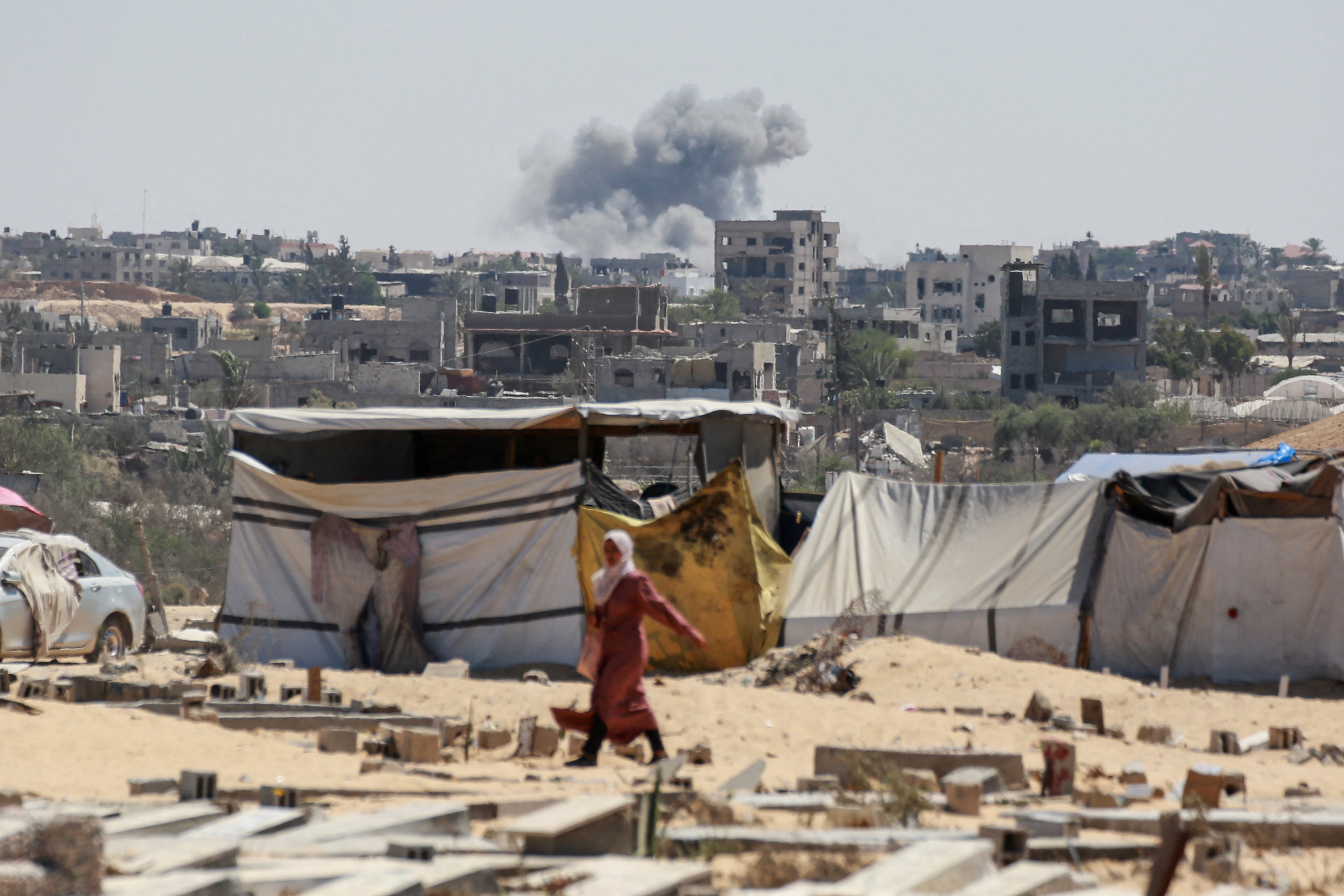US soldiers wounded in huge rocket attack on Iraq base as fears of Middle East war grow
Attack comes days after assassination of Hamas leader Ismail Haniyeh and Hezbollah commander Fuad Shukr
Your support helps us to tell the story
From reproductive rights to climate change to Big Tech, The Independent is on the ground when the story is developing. Whether it's investigating the financials of Elon Musk's pro-Trump PAC or producing our latest documentary, 'The A Word', which shines a light on the American women fighting for reproductive rights, we know how important it is to parse out the facts from the messaging.
At such a critical moment in US history, we need reporters on the ground. Your donation allows us to keep sending journalists to speak to both sides of the story.
The Independent is trusted by Americans across the entire political spectrum. And unlike many other quality news outlets, we choose not to lock Americans out of our reporting and analysis with paywalls. We believe quality journalism should be available to everyone, paid for by those who can afford it.
Your support makes all the difference.At least five US soldiers were reportedly wounded in a suspected rocket attack at a military base in Iraq amid growing fears of a war in the Middle East.
Two Katyusha rockets were fired at the al-Asad airbase in western Iraq, two Iraqi security sources said. One Iraqi security source said the rockets fell inside the base.
The attack follows the killings last week of a senior Hezbollah commander in Lebanon and Hamas’s top political leader in Iran in suspected Israeli strikes. Both groups are backed by Iran.
It was unclear whether the attack was linked to threats by Iran to retaliate over the killing of Hamas leader Ismail Haniyeh. One of the US soldiers is seriously injured, reported Reuters.
American defense officials said troops at the al-Asad air base were still assessing the damage.
Meanwhile, the US has amped up its diplomatic efforts, using different channels to advise Iran against escalation in the region, suggesting that it is not in their interest, a State Department spokesperson said on Monday.

Washington was “engaged in intense diplomacy, pretty much around the clock" to help calm tensions, said secretary of state Antony Blinken.
"All parties must take steps to ease tensions. Escalation is not in anyone’s interests. It will only lead to more conflict, more violence, more insecurity," he said.
Haniyeh was assassinated in Tehran last week in an attack that drew threats from Iran which said it will “punish” Israel. The Israeli officials have not yet claimed responsibility for the killing. Iran backs Hamas, which is at war with Israel in Gaza, and also the Lebanese group Hezbollah, whose senior military commander Fuad Shukr was killed in an Israeli strike on Beirut last week.

Mr Blinken in his remarks also called for parties to "break this cycle" of violence and agree to a ceasefire in the Gaza conflict, despite the killing of Haniyeh, who was a key figure in the negotiations between Israel and Hamas.
"What it comes down to really is all parties finding ways to come to an agreement, not look for reasons to delay or to say no," Mr Blinken said. "It is urgent that all parties make the right choices in the hours and days ahead."
US secretary of defense Lloyd Austin spoke with defense minister Yoav Gallant early on Tuesday. The two men agreed that the attack was a serious escalation that “demonstrated Iran’s destabilizing role” in the region. The Pentagon said Mr Austin “reiterate unwavering US commitment to Israel’s security in the face of threats from Iran, Lebanese Hezbollah, and other Iran-aligned militia groups”.

US president Joe Biden and vice president Kamala Harris were briefed by their national security team on the situation in the Middle East, including threats posed by Iran and its proxies to Israel and US service members, the White House said. They were also briefed about the attack on al-Asad airbase and discussed the US response.
The Pentagon has said it will deploy additional fighter jets and navy warships to the Middle East, as Washington sought to bolster defenses following threats from Iran and its allies Hamas and Hezbollah.
The US has been watching to see if Iran would make good on its vow to respond to the killing of Haniyeh two days ago in Tehran, one in a series of killings of senior figures in the Palestinian militant group as the war between Israel and Hamas in Gaza rages.
A rare ally of both the US and Iran, Iraq hosts 2,500 US troops and has Iran-backed militias linked to its security forces. It has witnessed escalating tit-for-tat attacks since the Israel-Hamas war erupted in October, with the US turning to Iraqi prime minister Shia al-Sudani to help decrease regional tensions by helping convince Iran to temper its response.
Mr Blinken also spoke with Qatari prime minister Sheikh Mohammed bin Abdulrahman Al Thani and Egyptian foreign minister Badr Abdelatty.
"One of the points of the engagements that we have had is to urge countries to pass messages to Iran and urge countries to make clear to Iran that it is very much not in their interests to escalate this conflict, that it is very much not in their interest to launch another attack on Israel," said State Department spokesperson Matthew Miller.
Additional reporting from the agencies

Join our commenting forum
Join thought-provoking conversations, follow other Independent readers and see their replies
Comments